Pew Names 5 New Marine Conservation Fellows for 2015
Five distinguished scientists and conservationists from Canada, Australia, Russia, and the United Kingdom are the 2015 recipients of the Pew fellowship in marine conservation. The fellowships will support research to improve ocean conservation and management, including work to investigate the impact of ocean noise on marine life, a study to identify factors that help maintain coral reef “bright spots,” an endeavor to better protect whales and dolphins in the Russian Pacific, a new effort to encourage bycatch reduction, and a collaborative project with Arctic Inuit to establish an artisanal fisheries research program.
The program awards recipients US$150,000 each for a three-year project designed to address ocean conservation challenges. It has awarded 140 fellowships to individuals from 32 countries since 1996.
“For nearly 25 years, the Pew Marine fellows Program in Marine Conservation has provided world-class ocean scientists and other marine-focused professionals with the opportunity to strengthen our understanding of the causes and consequences of – and solutions to – problems affecting the world’s oceans,” said Joshua S. Reichert, executive vice president and head of environment initiatives for The Pew Charitable Trusts.
The 2015 Pew marine follows:
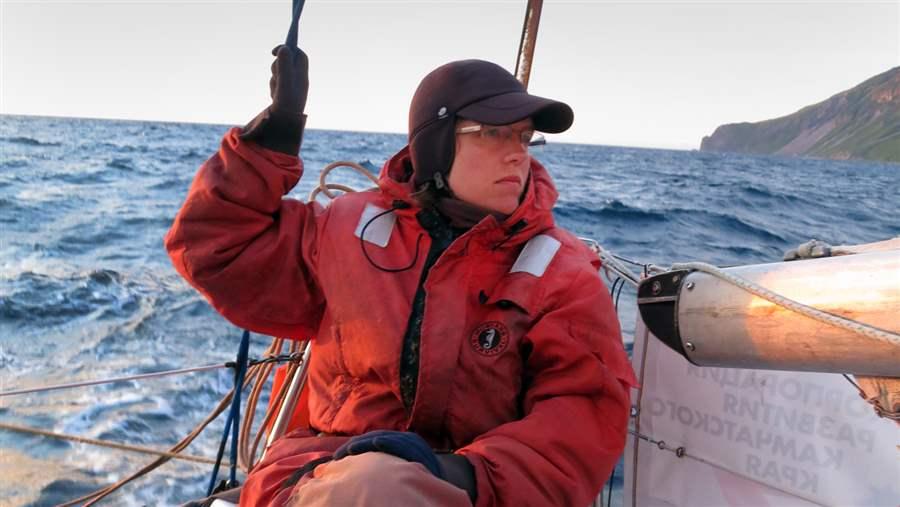 Moscow State University
Moscow State UniversityOlga Filatova looks out across the Russian Pacific, working to spot whales for her research. Read more
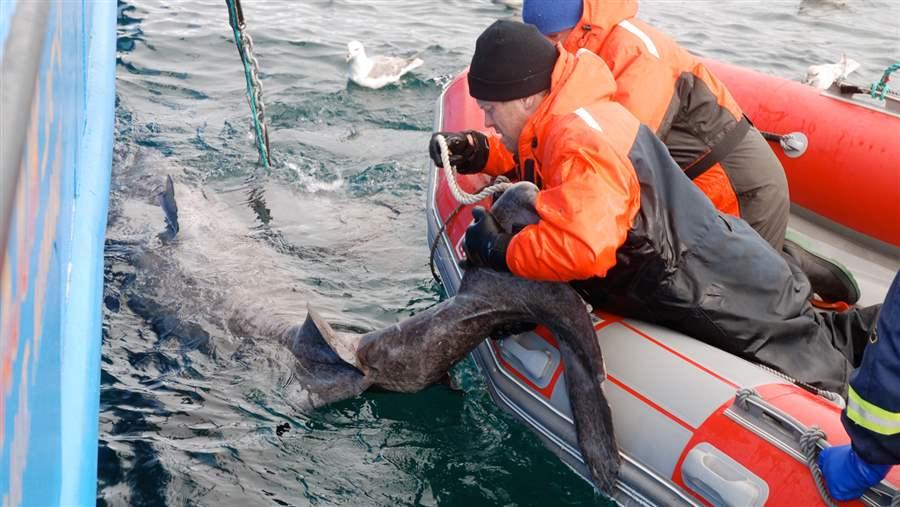 © University of Windsor
© University of WindsorAaron Fisk (center) prepares to tag a Greenland shark as part of his scientific research. Read more
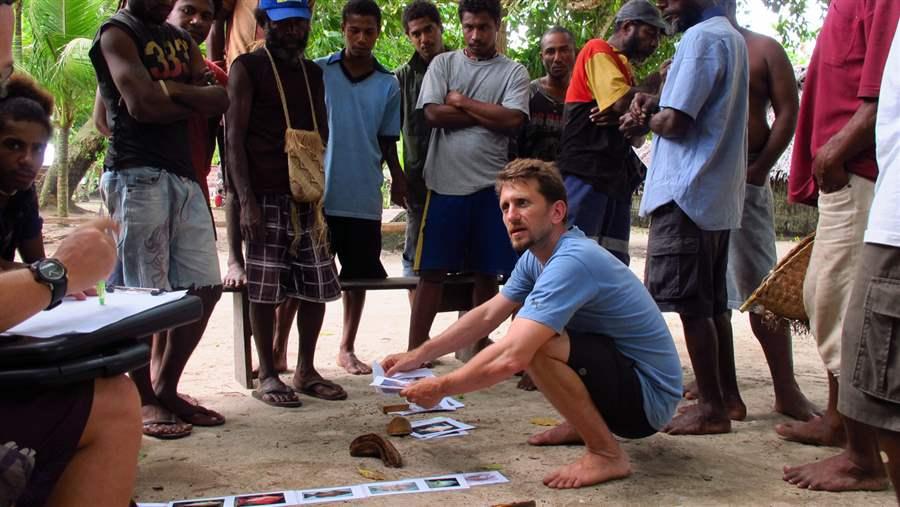 ARC Centre of Excellence for Coral Reef Studies
ARC Centre of Excellence for Coral Reef StudiesJosh Cinner speaks with a community in Papua New Guinea about how changing reef conditions have altered preferences for key target species. Read more
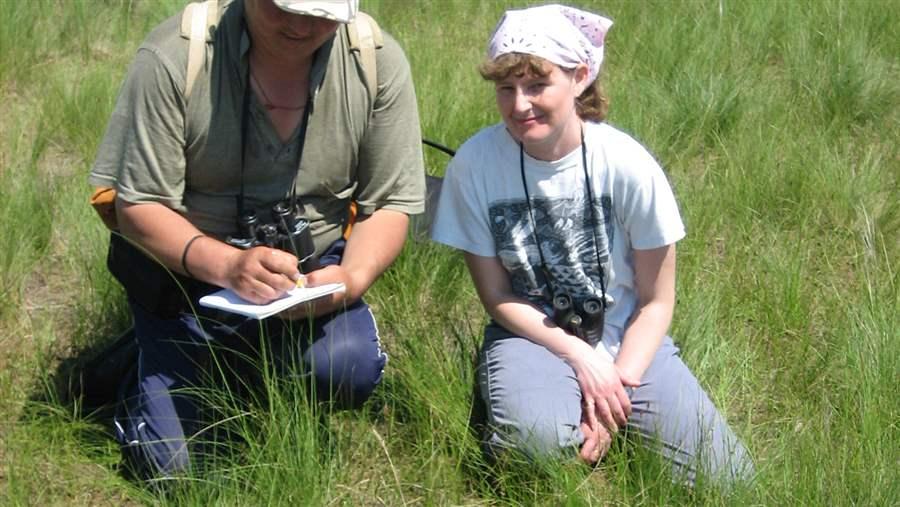 © Imperial College London, Department of Life Sciences
© Imperial College London, Department of Life SciencesE.J. Milner-Gulland spent time working in Africa, Cambodia, and Russia (pictured) learning new conservation techniques for ocean issues, while also applying ocean approaches on land. Read more
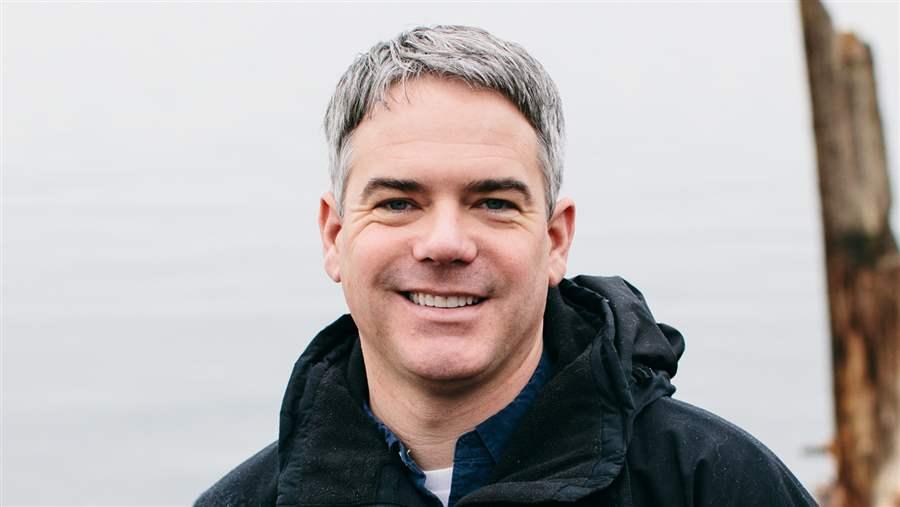 © Oceans Initiative
© Oceans InitiativeRob Williams, Ph.D., a marine conservation scientist with the Oceans Initiative and the Oceans Research & Conservation Association, conducts research to better understand the effects of marine noise on whales and to help officials set limits and establish protected areas. Read more
“The 2015 Pew marine fellows are investigating creative ideas to improve ocean protection,” said Polita Glynn, director of the Pew Fellows Program in Marine Conservation. “From understanding the special practices that help corals thrive, to finding innovative ways to reduce bycatch, these individuals are leading the way for marine conservation. I have no doubt their contributions will make a difference.”
Through a rigorous nomination and review process, a committee of marine specialists from around the world selects the fellows based on the strengths of their proposed projects, including the potential to protect ocean environments. Five unique and timely proposals by outstanding mid-career professionals are chosen annually.
For additional photos or video, or to reach one of the 2015 fellows, please email Rachel Brittin at [email protected].











